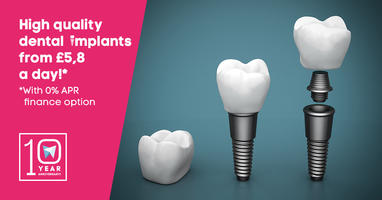While we are ever increasingly sure of the medical success of dental implants, and how they can preserve the alveolar ridge, there has been no data collected about whether this improvement in physical well being amounts to any changes in the quality of life of the patient. From the doctors point of view this aspect of the treatment can be obscured by the fact that medically the patient is kept healthy, but from the patients point of view this question is incredibly important. Dental implants are incredibly expensive, and unless they offer a significant improvement in the quality of life of the patient, why would they choose to go along with the treatment? This is why this quality of life study was launched.
The case of England
This study was launched in England, in the great city of Manchester. This is a good thing, as England is a particularly good example of the Western European trend of population demographics. The aging population is ever increasing, and the goods and services are just beginning to accommodate this fact, having been set on marketing to young people for so many decades. This aging population is of course, as nature would dictate, losing their teeth, and so, the question of implants, dentures, and other forms of dental prostheses is very important.

The study
This study reflects the lack of data on the ageing population. This study is set to test 44 patients who have absolutely no dentition, of which 16 have already been gathered, and half of them will be fitted with dentures atop regular implants, while the other half will receive mini dental implants. The goal is to try and find out how these procedures affect the quality of life of the patients, and to see if the cost-benefit analysis makes them worth it.
Relevance
This study is extremely relevant., as it will help patients decide if spending the not so little amount of money is worth it. Let’s face it, social security ain’t what it once was, and as the number of elders increases, monetary questions will become increasingly important. The not so little amount of money that dental implants cost is a serious investment, and whether or not this investment is worth it, and if it feels better and improves the last years of ones life is an extremely important question. I urge researchers to proceed with these kinds of studies, as this is the kind of data that we need in order to make informed choices as consumers.
image 1.

